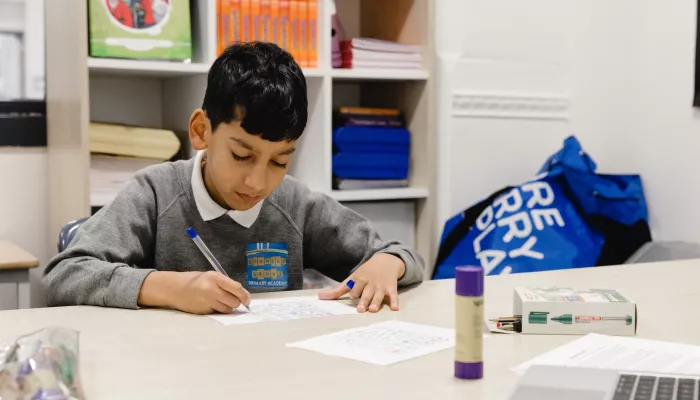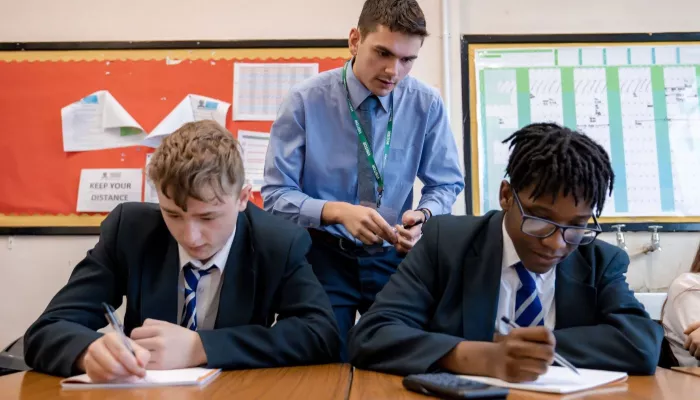
Our Impact Report
Our 2023 Impact Report, published in November 2023, showcases our many achievements and highlights from the last academic year.
This year 2022/2023 saw us partner with the National Tutoring Programme for the third consecutive year and also marked the arrival of our new CEO Ed Marsh. We also reached an incredible number of young people across Greater Manchester, West Yorkshire, and Merseyside. Here’s just a snapshot of our successes from last year:
- We reached 6,480 pupils
- We delivered 7,627 tutoring programmes – a record for us!
- We also supported 162 pupils through our specialist Tutoring Plus service
- We worked in 156 schools
- 89% of our tutees received Pupil Premium and/or attended a school serving a low-income area
- Also, almost all (97%) of the schools from last year who completed our school partner survey would recommend us to another school
As well as our headline achievements, the report includes real-life stories of the tutors, schools, and pupils that we’ve worked with – bringing to life the work that we do every day and reminding us of the positive change our tutoring can bring about.

Want to know more about creating impactful tuition in your school or college?
If you’re a school or college leader and would like to know more about how we can work together to support your pupils, you can register your interest below:

